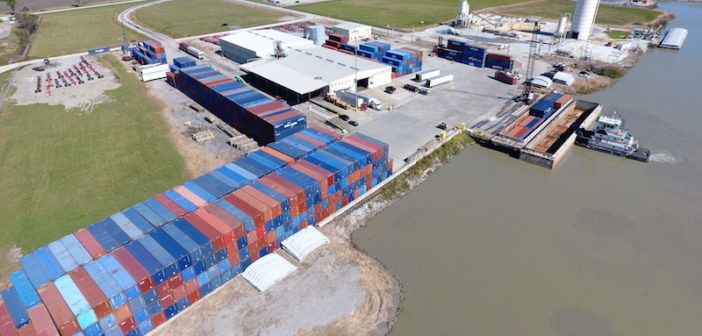Maritime industry representatives told Congress that despite supply interruptions and employee illness, they have been able to keep commodities moving through the nation’s ports and waterways during the pandemic.
But as the pandemic lingers and a long economic recovery lies ahead, they asked Congress to take several steps to minimize transportation disruptions and keep the maritime industry and its workers healthy.
“The domestic maritime industry remains resilient but needs your support to continue to navigate the challenges of keeping mariners healthy and vessels in service,” Del Wilkins, president of Illinois Marine Towing, a subsidiary of Canal Barge Co., told a hearing before the House Coast Guard and Maritime Transportation subcommittee on Tuesday.
At the beginning of the pandemic, companies moved quickly to protect workers and keep vessels clean, but as the pandemic deepened “towing companies are seeing increased incidences of exposure and infection off the job, which keeps mariners and other front-line maritime transportation workers from reporting for work,” said Wilkins, who is also vice chairman of the Board of the American Waterways Operators. At the same time, he added, many companies are struggling to pay the costs associated with the pandemic.
Wilkins joined shipbuilders, waterfront workers, shipbuilders, ports and other barge and towing companies in outlining a number of priorities to assist the industry through the pandemic and recovery:
- Expedite Covid-19 vaccinations and testing for working mariners and those studying at maritime schools who are ready to enter the profession. Although mariners are considered essential workers, they are not categorized as “frontline” essential workers in the Centers for Disease Control and Prevention’s guidance on vaccine allocation and in many state vaccine distribution plans.
- Provide robust funding for the Maritime Transportation Relief Act, passed by Congress and signed into law on Jan. 1, which establishes an emergency assistance program for maritime companies. The industry had been largely left out of previous national Covid-19 relief legislation.
- Provide strong funding for the U.S. Coast Guard and Navy shipbuilding programs, and for continued waterways infrastructure improvements that are underway. Witnesses endorsed passage of a broad national infrastructure program that President Biden has promised.
- Support the Jones Act and discourage waivers to the law or efforts to diminish its effectiveness. Witnesses said they were pleased with the strong support for the Act that has been expressed by the new Biden administration.
- Look at new ways to increase cargo on U.S.-flagged ships.
- Encourage development of the offshore wind industry, which has provided new business to shipbuilders and maritime operators during the pandemic. “This is one of the most important emerging markets for our industry,” Michael Roberts, senior Vice President of Crowley Maritime, said.
- Develop effective policy responses to China’s maritime ambitions, and reassess U.S. trade and tariff policies.
For the nation’s ports, the pandemic has caused “significant impacts” that have produced “one of the most erratic and volatile years in terms of container volume,” Mario Cordero, chairman of the Board of the American Association of Port Authorities and executive director of the Port of Long Beach, told lawmakers.
China closed its manufacturing plants, which cancelled shipping, then there was a drop in consumer spending during lockdowns, and by November commercial cargo volumes had declined 5.5% compared to then prior year numbers and the value of trade slipped 12.7%, Cordero said.
The Port of Long Beach began to rebound in May with record volumes in July. “The year concluded with a December that turned out to be our busiest month ever. We started soft, in a sea of uncertainty and finished strong, topping 8.1 million TEUs. It was our best year ever.”
The surges have caused a shortage of containers for the export market and tight availability for chassis. “Despite these challenges, goods and cargo have continued to move through our ports.”
But while Long Beach experienced surges in cargo over the course of the year, there are many other ports that had cargo declines with little recovery, he said. “One thing is clear, no port has been spared the impact of the Covid-19 pandemic. While there were encouraging signs at the end of the year for some of those ailing, the outlook for the coming year remains uncertain.”
Ben Bordelon, president and CEO of Bollinger Shipyards, speaking for the Shipbuilder’s Council of America, said that his industry has also been “greatly impacted by Covid-19,” with new costs and delays related to production, workforce and supply chains.
He said the biggest drivers of the cost impacts have been high rates of absenteeism, “sometimes as high as 30 percent at some of our member yards, unexpected loss of supervision, late equipment deliveries due to other production delays in the supply chain and inability of our suppliers to travel to oversee complex discussions with our engineers.”




